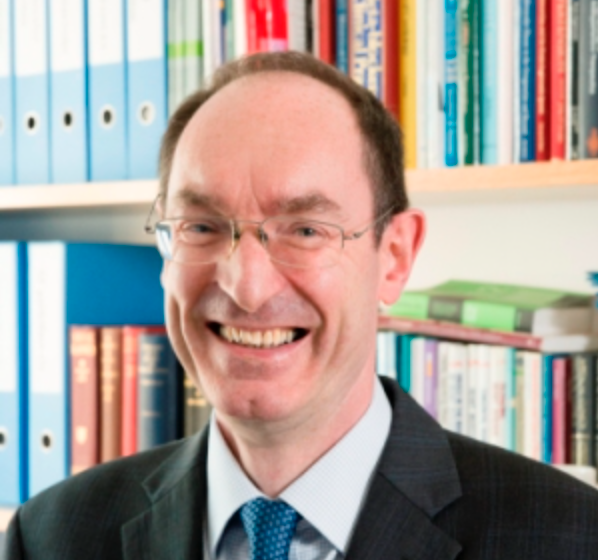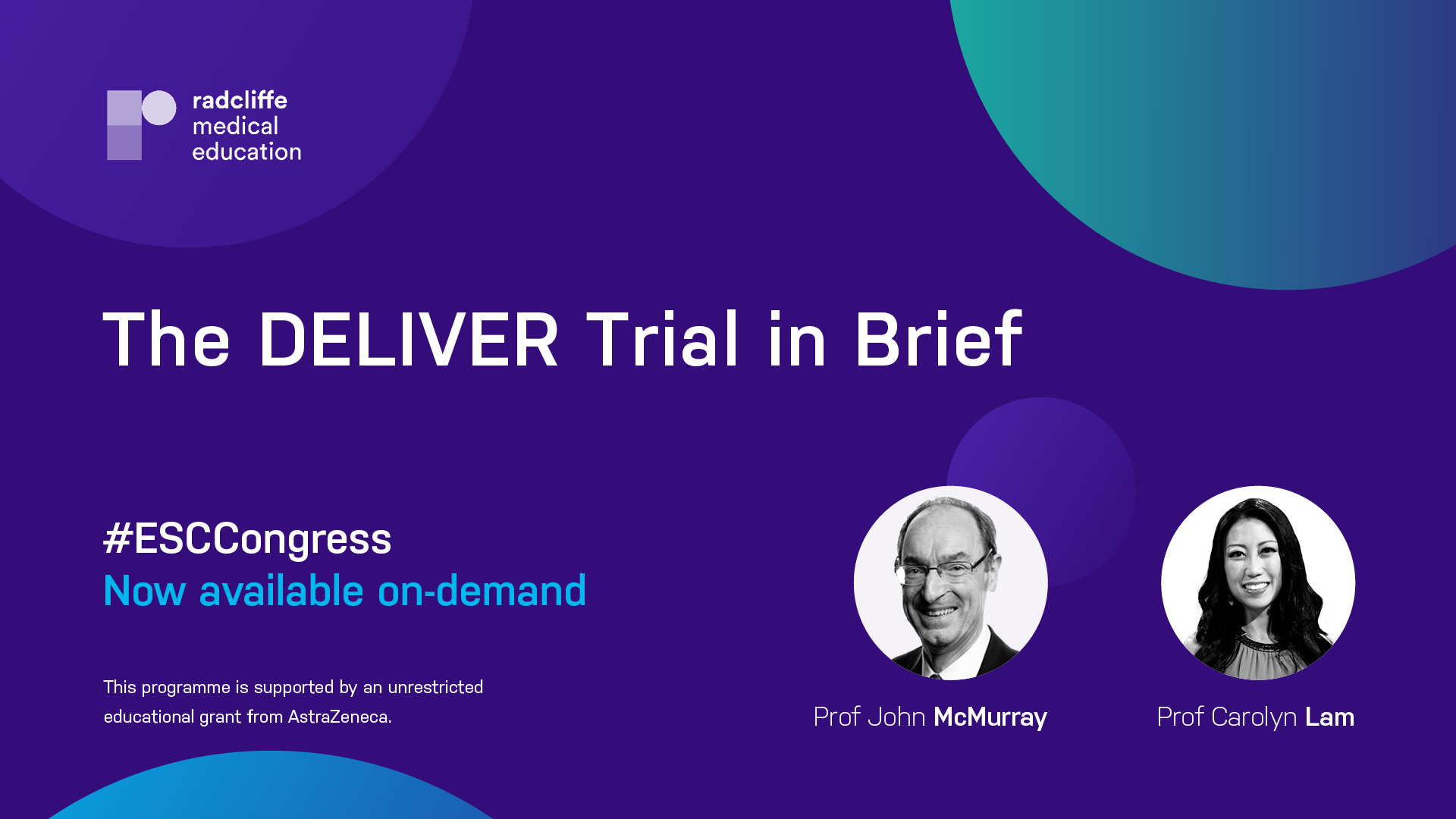The DELIVER Trial in Brief
Published: 29 August 2022
-
Views:
 43821
43821
-
Likes:
 7
7
-
Views:
 43821
43821
-
Likes:
 7
7
Overview
In this video, Prof Carolyn Lam (National Heart Centre Singapore, SG) discusses DELIVER with one of the trial’s lead investigators, Prof John McMurray (University of Glasgow, UK). As well as the key results from DELIVER, they consider how to apply them to HFpEF patients in the real-world.
Recorded at ESC Congress 2022, Barcelona.
To find out more, listen to Prof Lam and Prof McMurray discuss the DELIVER and DAPA-HF Pooled Analysis in Brief.
Key Learning Objectives
Following the completion of this programme, physicians should be in a position to:
- Recall the results of DELIVER and key patient sub-groups enrolled in the trial
- Apply the results from SGLT-2 inhibitor trials to real-world HFpEF patients
Target Audience
- Heart Failure Specialists
- General Cardiologists
- Allied Healthcare Professionals
More from this programme
Part 1
The DELIVER Trial in Brief
| 1 session | |
| The DELIVER Trial in Brief | Watch now |
Faculty Biographies

Carolyn Lam
Professor and Senior Consultant
Prof Carolyn Lam is a Senior Consultant at the Department of Cardiology and Director of Women's Heart Health at the National Heart Centre Singapore, having pioneered the first Women’s Heart Clinic in Singapore. Prof Lam is a world-renowned specialist in heart failure (particularly heart failure with preserved ejection fraction [HFpEF]). Her work in the PARAGON-HF and EMPEROR-Preserved trials led to the first FDA-approved treatment for HFpEF and the first robustly positive clinical outcomes trial in HFpEF to-date.

John JV McMurray
Professor of Cardiology
Prof John McMurray is Professor of Medical Cardiology and Deputy Director of the Institute of Cardiovascular and Medical Sciences at the University of Glasgow, and honorary Consultant Cardiologist at the Queen Elizabeth University Hospital, Glasgow. A graduate of Manchester University, Prof McMurray completed postgraduate research at the University of Dundee.
Prof McMurray is a Fellow of the European Society of Cardiology (ESC), American College of Cardiology and American Heart Association as well as the medical Royal Colleges in Edinburgh and Glasgow and the Royal Society of Edinburgh and UK Academy of Medical Sciences.






